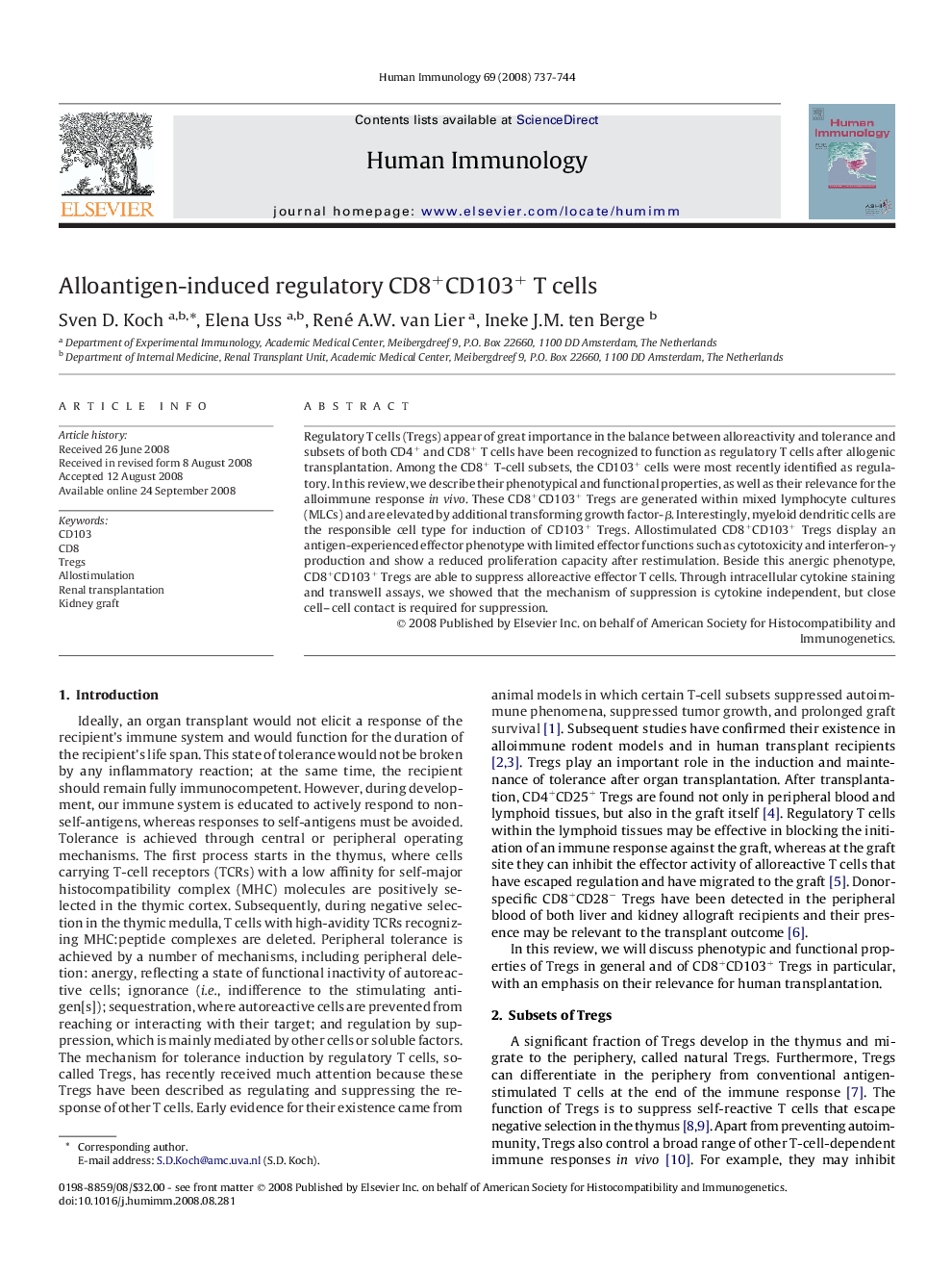| Article ID | Journal | Published Year | Pages | File Type |
|---|---|---|---|---|
| 3352300 | Human Immunology | 2008 | 8 Pages |
Regulatory T cells (Tregs) appear of great importance in the balance between alloreactivity and tolerance and subsets of both CD4+ and CD8+ T cells have been recognized to function as regulatory T cells after allogenic transplantation. Among the CD8+ T-cell subsets, the CD103+ cells were most recently identified as regulatory. In this review, we describe their phenotypical and functional properties, as well as their relevance for the alloimmune response in vivo. These CD8+CD103+ Tregs are generated within mixed lymphocyte cultures (MLCs) and are elevated by additional transforming growth factor-β. Interestingly, myeloid dendritic cells are the responsible cell type for induction of CD103+ Tregs. Allostimulated CD8+CD103+ Tregs display an antigen-experienced effector phenotype with limited effector functions such as cytotoxicity and interferon-γ production and show a reduced proliferation capacity after restimulation. Beside this anergic phenotype, CD8+CD103+ Tregs are able to suppress alloreactive effector T cells. Through intracellular cytokine staining and transwell assays, we showed that the mechanism of suppression is cytokine independent, but close cell–cell contact is required for suppression.
